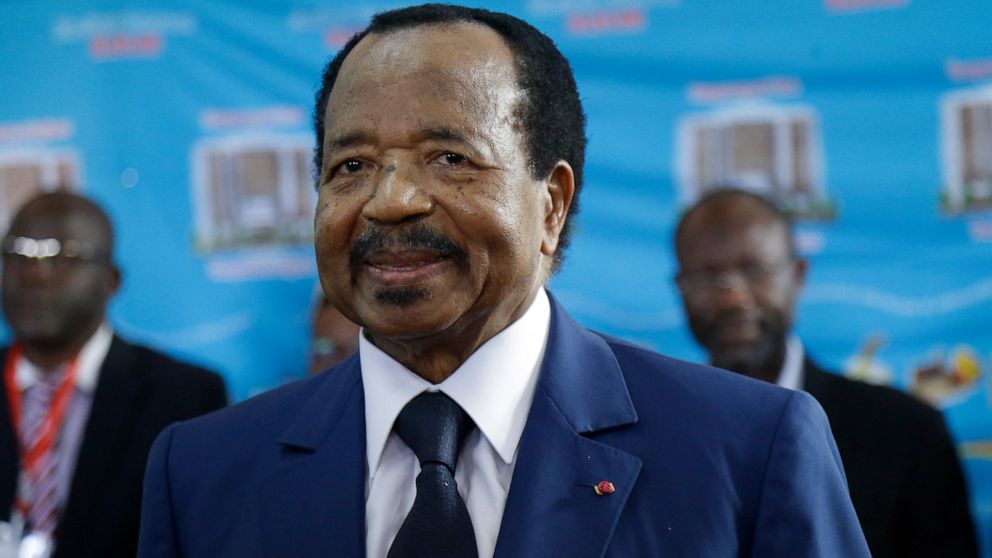

YAOUNDE, CAMEROON —
Cameroonian President Paul Biya marked 40 years in power Sunday but stayed out of the spotlight as questions swirled about the 89-year-old who is the only leader most of the Central African country’s people have ever known.
Thousands of his supporters gathered in the capital, Yaounde, to celebrate the anniversary but there were only giant portraits of the absent president.
Biya has not appeared in public since French President Emmanuel Macron visited in July. Decrees and photos of Biya receiving various diplomats are regularly posted on the president’s social media accounts.
“Since our father took power we live in peace — he protects us well,” said Biya supporter Paul Ambassa on Sunday. “May God keep him.”
However, critics of the Biya regime were wearing black Sunday amid the celebrations.
“Nov. 6 is considered a day of national mourning because Mr. Biya inherited a rich, prosperous and growing country,” said critic Darling Nguevo. “And he set about unraveling every sector of life and society.”
“Corruption has made its bed in the country. So has bad governance. Paul Biya is old and his public appearances are rare, and this is happening against the backdrop of the succession battle,” he added.
Biya is Africa’s second-longest serving leader: The president of Equatorial Guinea, Teodoro Obiang Nguema Mbasogo, has been in power since 1979.
Biya was Cameroon’s prime minister and became president in 1982 after his predecessor, Cameroon’s first president following the country’s independence from France, stepped down due to health reasons.
The majority of appointments Biya made in the ensuing years were members of his own southern Beti ethnic group, which quickly grew to dominate senior prefect positions and the prime minister’s office.
He survived a 1984 coup attempt. When the country’s first multi-party election was finally held in 1992, Biya bested his opposition rival by just four percentage points.
In the decades since, Biya’s party has used everything from fraud to redistricting to expand his victories and the ruling party’s legislative majorities, according to political analysts. Human rights groups have accused him of brazen strongman tactics, including torture and intimidation of his opponents.
Biya has faced challenges in recent years that range from a secessionist movement in Cameroon’s English-speaking provinces to the threat in the north posed by Islamic extremists aligned with the Nigeria-based Boko Haram group.
Critics point to the role that corruption has played in entrenching Biya’s regime, with the spoils allegedly going to his allies in government, the security forces and the president’s family.
Political analyst Aristide Mono said the celebrations around Biya’s 40th anniversary in power were “part of a tradition of sanctification.”
“The people in charge of these various mobilizations are very much driven by the logic of clientelism, as each tries to show his allegiance, to show a lot of fidelity and loyalty,” Mono said.
Displays of loyalty have become particularly important as Biya gets older. The president’s son, Franck Biya, has been more visible at his father’s side. Some think he is positioning himself as a possible successor.
There are fears chaos could break out in a country with more than 200 different ethnic groups once the president’s long tenure ends.
“Biya hasn’t taken the time to prepare a successor, someone who could amply inherit his power,” Mono said.